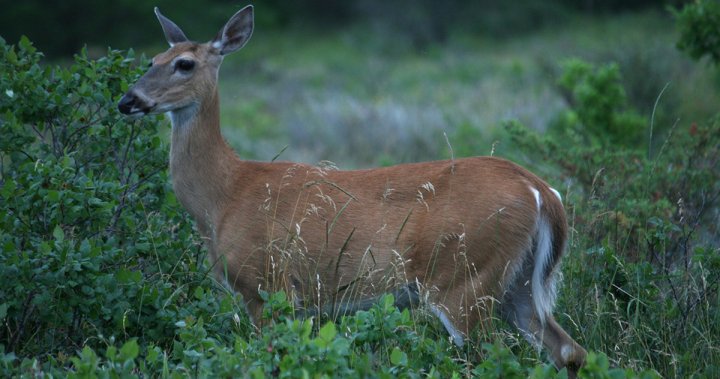
COVID-19 virus found in 3 Quebec deer, Canadian officials say
Global News
Three deer in Quebec's Estrie region have been found to carry the virus that causes COVID-19, the federal government announced.
Three deer in Quebec have tested positive for COVID-19, according to Environment and Climate Change Canada, meaning that the disease isn’t just affecting humans, but also Canadian wildlife.
The Canadian Food Inspection Agency’s National Centre for Foreign Animal Disease confirmed the first detections of SARS-CoV-2, the virus that causes COVID-19, on Nov. 29, according to a federal government press release.
The three white-tailed deer were found in Quebec’s Estrie region and represent the first time the disease has been detected in wild animals in Canada.
“Similar to findings in the United States, the deer showed no evidence of clinical signs of disease, and were all apparently healthy,” according to the press release.
Previous research found that deer in several states in the northern U.S. were testing positive for the virus. Studies indicated human-to-deer and deer-to-deer transmission.
One study by the U.S. Department of Agriculture found antibodies to the SARS-CoV-2 virus in 40 per cent of the 385 wild deer they sampled in 2021 from four states: New York, Michigan, Pennsylvania and Illinois. These antibodies suggest that the deer were exposed to COVID-19 at some point, the researchers wrote.
However, according to Canada’s Environment Ministry, “there has been no known transmission of SARS-CoV-2 from deer to humans at this time.”
Still, the department urges hunters – who might come into contact with deer – to take precautions.












